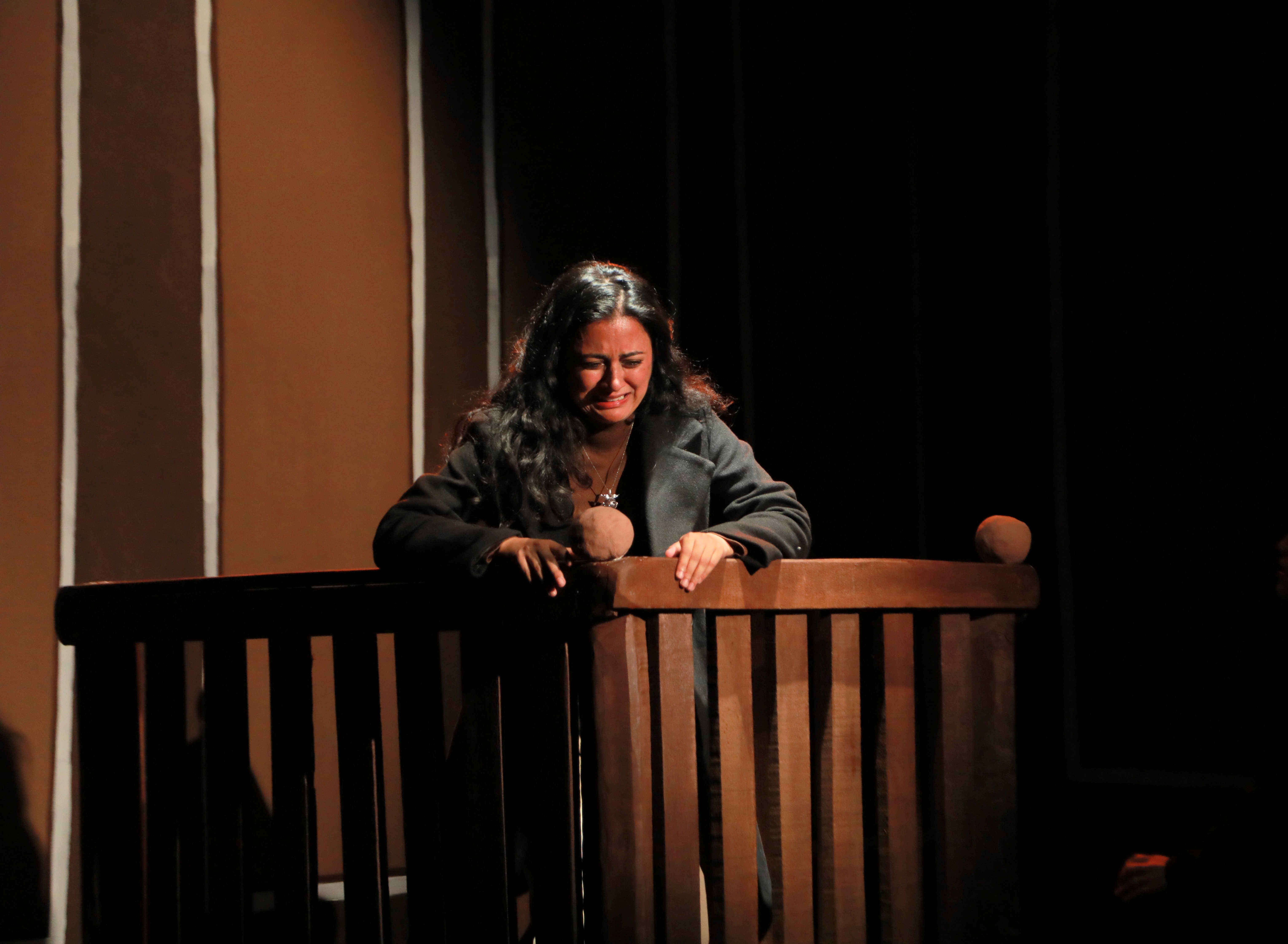Theater
Whodunit, with a twist
Murder or suicide? Fakir production’s ‘Guilty or Not Guilty’ lets you decide.
Anusha Dhakal
Imagine this: a wealthy business tycoon is dead—murder or suicide? Among the accused are his stunning secretary and lover and his equally wealthy father-in-law. There is evidence, but not enough to support either party. The verdict is unpredictable, and the outcome is in the hands of the jury, picked from the audience. Intriguing enough?
Adapted and “Nepalified,” as director Raj Kamal puts it, from Ayn Rand’s ‘On the Night of January 16th’, ‘Guilty or Not Guilty’ is more than just a play; it is a case study that not only delves into the psyche of its characters but also into those of the audience members who judge them.
I’ve always wanted to be on the jury in a court case, thanks to my fascination with Bollywood courtroom dramas. I haven’t yet encountered a real-life court case, but a theatre one was equally enthralling. So, when the audience was asked to raise their hands to be the jury, I couldn’t resist the temptation. Watching the play from the jury’s perspective captivated me, and I noted every clue as different witnesses took the stand.
The defendant in the case, Karina Aire (played by Samapika Gautam), is the most interesting character of all. She is attractive, seductive and destructive—a true archetypal femme fatale, as described by the testimonies of various characters in her life. Many dislike her, many fall in love with her; she is ambiguous and riveting. I couldn’t keep my eyes off her—even when she wasn’t on the witness stand.
Karina is a double mirror, an actress in every sense of the word. She lies, she cheats, she deceives. Tears and screams, whether genuine or staged, punctuate her performance, blurring the line between victim and perpetrator. But who’s to say? The truth is ambiguous anyway.
Various witnesses give their testimonies, including the security guard of the apartment building from which the business tycoon, Radhey Shyam Agrawal, fell to his death. His maid, his accountant, his wife’s private detective, his wife, his wife’s father, and a goon all testify. The range and diversity of characters, along with the actors' portrayals, are truly commendable.
Each actor does justice to their role. The play seamlessly transitions between humour, emotional intensity, and sombre moments—engaging the audience in a rollercoaster of emotion.
My decisions and guesses regarding the verdict kept reverberating between guilty and not guilty constantly because, as the play unfolds, so do the secrets. Every moment of the play is gripping—you will not be able to take your eyes off the stage. It is a two-hour play, but because of the intensity of the actors' emotions and the labyrinthine plot, you will remain focused, questioning and delightfully confused.
The play takes an enthralling turn when Radhe Shyam’s socialite wife, Nistha Pandey (played by Basana Timilsina), enters the stage. In stark contrast to the enigmatic and alluring Karina, Nistha embodies a soft and vulnerable nature.
During her testimony, she portrays a woman who truly loved Radhe Shyam. She recounts the time when he proposed to her and when he first met her. Her recollections sound genuine and authentic. However, in a world where everyone wears a facade, trust becomes elusive.

I couldn't help but notice how in her testimony, she doesn't seem to love Radhe Shyam but seems to love the idea of him, which could’ve manifested in a controlling behavior and might've led her to contribute to her husband's murder in some way.
When conflict between mistress and wife, Karina and Nistha sets off, the whole stage ignites with intensity. Karina accuses Nistha of purchasing her lover for three crores, a scene reminiscent of Sridevi's character in ‘Judaai’. During these moments in the play, one questions: Who is the other woman? The vindictive and passionate Karina, or the submissive and demure Nistha? Or are both of them pawns in Radhe Shyam’s larger game?
Radhe Shyam and Karina are portrayed as social climbers, convinced of their superiority and willing to do anything for wealth. They are superficial, opportunistic, and deceitful. The narrative depicts them as reminiscent of Bonnie and Clyde, deeply intertwined in their souls and willing to go to any lengths for each other. Throughout the play, it was difficult for me to empathise with Radhe Shyam, as he is portrayed as a lawless psychopathic narcissist.
However, shockingly, many audiences found themselves empathising with his character. Raj Kamal, the director, expresses that this might be because, in some ways, Radhe Shyam might represent the hope of the youth. After all, unlike his father-in-law, he started from scratch to build his wealth.
If you're seeking a play that strictly adheres to courtroom protocol, you might find this play a bit exasperating, as it tends to somewhat take an unhinged route at times. However, despite these deviations, the play is undeniably intriguing and offers a unique experience not commonly seen in the Nepali theatre scene.
In this play, everyone, including the audience, is on the trial. It serves as a compelling case study, pushing audiences to question the reliability of narrators and their memories, as well as the steadfastness of their worldviews. As the voting finally arrived, I couldn’t help but confront my own biases. I reflected on why I voted a certain way and whether it revealed something about myself and my personality. This play compelled me to look inward, and I pondered its themes long after leaving the theatre.
This play might just be for you if you're a fan of open-ended interpretations or endings that leave you feeling unsatisfied. But if that's still not your cup of tea, catch this play for its intriguing plot and emotional richness.
Guilty or Not Guilty
Director: Raj Kamal Fakir
Cast: Anand Tamrakar, Avash Adhikrai, Samapika Gautam, Basana Timilsina
Duration: 2 hours
Venue: Kausi Theatre, Teku
Showtimes: Every day at 5:30 pm and extra 1:30 pm show on Saturday until June 8.




 18.35°C Kathmandu
18.35°C Kathmandu











